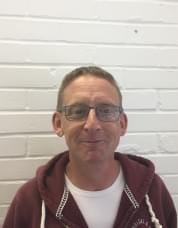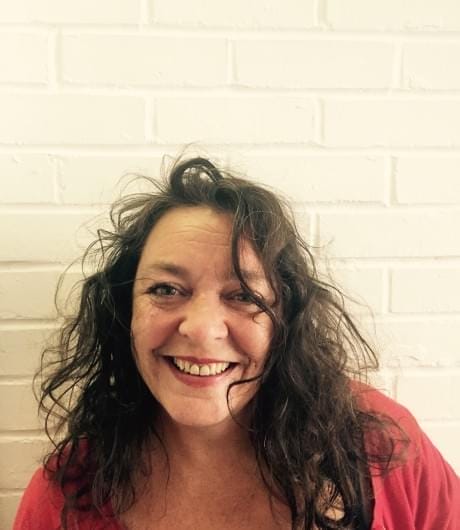So often, frontline workers form the lifeblood of the systems that support people subject to extreme forms of marginalisation.
System Changers
So often, frontline workers form the lifeblood of the systems that support people subject to extreme forms of marginalisation.
Before you can think about what change in a system would actually improve it, you need to see the system as a whole and what is really happening within it. Systems are complex and interconnected. They are made up of people, processes, rules and culture, to name just a few key elements.
One of the first parts of the Systems Changers programme is about helping people see the wider system they are operating within. We all work at particular points in the system and can often be blind to what’s outside our field of view. We stop noticing what’s around us. It’s about going beyond your own viewpoint and seeing multiple perspectives in a system.
These theoretical modules will give ideas on stepping outside your usual way of thinking and seeing things differently. In addition, a crucial part of seeing the system is taking time out to notice all of it. Don’t rush the process.
Systems Changers creates the space for people to explore, notice, observe and reflect on what is around them.
Why is this so important? Changes are often brought in that don’t think about the system as a whole, which may have unintended consequences or simply don’t work. For instance, a new referral form that captures perfect data on complex needs may take 2 hours to complete and therefore reduce the time spent helping a client. Or a slight change in eligibility to save money in one service may mean that another more expensive service is inundated.
in the corridors of power in Whitehall and the services commissioned in town halls. They are the ones who have day-to-day contact with people experiencing homelessness, abuse, mental health crisis, addiction or a combination of these. Yet, their perspectives rarely form part of developing the policies and services they deliver, and their insights are seldom included in efforts to reform the multiple systems they work in. Frontline workers rarely possess the power to make these systems work for the people they support.
These systems include public service systems, support systems and the systems in their organisation.
We saw this gap and partnered with Point People and Snook to tackle it. In 2016, we launched the first Systems Changers programme, and some five years later, nearly 100 people have gone through a version of the original programme.
The original pilot was in 2015 in the North East and North West of England. In 2016, it ran with participants from across the South East. In 2018, we partnered with The Children’s Society to deliver a variation of the programme for their own staff. Most recently, the programme has been delivered every year for the past three years in York – one of the places we work most intensely in.
As the programme has responded and adapted to the local need, it has moved away from the original focus on frontline workers. The programme is now open to all people doing their bit to contribute to systems change for people subject to marginalisation.
One of the original Systems Changers videos can be seen here.
Sessions Covered
Before you can think about what change in a system would actually improve it, you need to see the system as a whole and what is really happening within it. Systems are complex and interconnected. They are made up of people, processes, rules and culture, to name just a few key elements.
One of the first parts of the Systems Changers programme is about helping people see the wider system they are operating within. We all work at particular points in the system and can often be blind to what’s outside our field of view. We stop noticing what’s around us. It’s about going beyond your own viewpoint and seeing multiple perspectives in a system.
These theoretical modules will give ideas on stepping outside your usual way of thinking and seeing things differently. In addition, a crucial part of seeing the system is taking time out to notice all of it. Don’t rush the process.
Systems Changers creates the space for people to explore, notice, observe and reflect on what is around them.
Why is this so important? Changes are often brought in that don’t think about the system as a whole, which may have unintended consequences or simply don’t work. For instance, a new referral form that captures perfect data on complex needs may take 2 hours to complete and therefore reduce the time spent helping a client. Or a slight change in eligibility to save money in one service may mean that another more expensive service is inundated.
People often consider Design as a capital D pursuit- fashion, products, websites. It is, but we consider the mindset and process behind the pursuit of this as ‘design thinking’. It is merited with supporting the drive of innovation by focusing on user needs not technology and re-designing less tangible ‘things’ like services, processes and even bureaucracy.
Key to this approach is considering the total end to end experience, seeing both the macro process and micro detail (from fonts to language in a form) and really putting people at the heart of what is needed.
In Design Thinking we touch upon the benefits of testing (prototyping) ideas before implementing them, co-designing with the people who use and deliver services and how to map the journey of different user groups.
Download ReportWe often try to solve complex problems by applying the same thinking and trying the same solution over and over, even though it’s really not working. We get caught in a trap shaped by our own perspective and view of the problem.
Systems Thinking is a way of thinking differently about complexity. It looks at how the different parts of a system link and interact in order to generate new insights into how the system works as a whole. As a result a different and more appropriate solution will usually emerge. It’s not difficult to apply systems thinking to a problem but it can be difficult to see we might be trapped in one perspective.
Download ReportThroughout time we’ve created maps to help us understand what’s around us and to help us navigate complexity. This session will explore how thinking about cartography and mapping can help us think about systems.
Like systems, maps always have an intent behind them. For instance, a map might show hills and mountains, it might help people find a quick way to get from A-B or it might represent power. To be able to make best use of a map or to improve it we need to understand its purpose. The same is true of systems: to make system change, we first need to understand the intent behind that system.
The systems we have created are so large and complex, with problems that are owned by multiple stakeholders throughout ‘levels’ of systems. This means there is no quick fix even though it may initially feel easier to succumb to the ‘silver bullet’ theory.
To take on Systems Change from any part of the system we must first understand, and take on practices of multiplicity.
Multiplicity takes on several forms- from creating the space to hold insights from multiple perspectives, to evidencing these insights, to holding long term change views. It is about ensuring that over a long term period of time there is space for continuous and dynamic input from a range of stakeholders and evidence sets.
This is a difficult mindset to balance and hold but vital when it comes to Systems Change.
Theory video:
The systems around us often seem fixed, immovable and the problems that we see within them we may feel powerless to change, especially as one person. This second part of the Systems Changers programme is about challenging these feelings and assumptions.
The theory sessions are designed to support frontline workers to find for themselves where there might be potential within the system to make change; to discover where they might have power, and to think through the effects making change might have. Many of our systems changers had already found ‘flex’ instinctively in developing workarounds and ways of getting around problems they encountered but had only made limited use of this skill.
Wherever we operate in the system we can feel restricted in what we can do but as one of the group noted afterwards ‘there is always flex.’ It might be big or small. It might be finding that there is an alternative to an official way of applying for a benefit that makes it easier for people with serious health conditions, or that a service doesn’t have to be run according to the budget lines that have been created, or simply that you can change how you greet people when you meet them.
When you see the title ‘Systems Changers’, making change happen is probably the first thing that comes to mind but it is actually the final part of our programme but one which doesn’t finish with the last of our sessions.
These sessions are just a few of the ways in which we supported our group to experiment with change. From understanding service design methods for prototyping and testing ideas, to how to work with cultural resistance to change. At this point in the programme we also provided more individualised advice as people naturally take on different approaches and roles in how they experiment with change. For some change may be at a personal level, or it may be about revealing to others what needs to change through gathering evidence and making a case, only some people will want to get stuck into redesigning a service or campaigning for change.
We also recognise that some ideas that may have been sparked by this programme may only emerge fully months down the line whereas others are already starting to take flight. For our groups of frontline workers one of the biggest challenges is continuing to find the time and permission to work in this way once the official programme is at an end.











